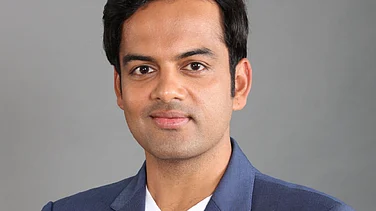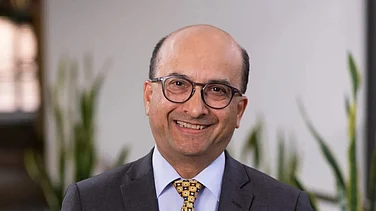The digital payment ecosystem in India has seen a series of developments in the last few quarters. After the enormous success of Unified Payments Interface (UPI), the Reserve Bank of India (RBI) announced the launch of Unified Lending Interface (ULI). At the same time, the National Payments Corporation of India (NPCI) has announced the launch of UPI Circle at the Global Fintech Fest (GFF).
In an interview with Outlook Business, Vikas Bansal, chief executive of Amazon Pay India and Mayank Jain, director, credit and lending, talk about the impact of recent developments and launches in the fintech and the digital payment ecosystem in India.
NPCI has launched UPI Circle. When can we expect Amazon Pay to introduce the feature? Do you think there is a need for infrastructural changes to incorporate it?
Vikas Bansal: I think this is a really good innovation that will help in more UPI adoption. So we already are working towards it. This will be carried out in a closed user group as of now. Later, we will bring it to the market. This will just be a part of the product development cycle. It is hard to confirm the tentative timeline now. We are already in production.
Amazon Pay has now signed up 100mn customers on its UPI. How did you manage to navigate a market where a handful of companies have monopoly in UPI?
Vikas Bansal: Our agenda is long-term and how we can make it easier for customers who want to pay through UPI. This has been our journey, and we will continue to focus on the journey for the next 5–10 years or more.
There are a lot of opportunities for UPI for everyone. There will be innovations on UPI, credit on UPI, RuPay credit on UPI, offline payments, delegates payments and many more. These are important enablers that help continue the growth in the UPI ecosystem.
We just look from the customer perspective and see where the problem is and how can we solve it in a very differentiated way. That is how we approach it and continue to make payments on that.
RBI governor Shaktikanta Das recently confirmed the formation of a self-regulatory organisation (SRO) for fintechs in India? What do you think would be the impact of this on the Indian fintech ecosystem?
Vikas Bansal: I think we are one of the most dynamic fintech ecosystems in the world. At the same time, SROs can play a really important role in self-regulating all these fintech or pay service operators.
So, I think SRO is a great framework to establish standards and ensure self-compliance and provide regular consultation with the regulator on issues like problems faced by the industries and problems the regulator is facing. Both can collaborate and resolve the problem.
Also, there might be a little burden on the regulator as we have so many fintechs, close to 10,000 or more, and growing. And at this point, SRO becomes an enabler. The expectations we have from the SRO are to set the standards, self-regulate, self-report and then take it forward.
Is Amazon Pay planning to launch any standalone app in India?
Vikas Bansal: We always prioritise customers’ needs. If there is a need we will move in that direction. Right now, it is very speculative. We need to understand the needs of the customers and take the right call.
We have seen the success of UPI. How do you think ULI can revolutionize credit market?
Mayank Jain: While UPI revolutionised payments, it is also revolutionising credit growth. Now, there is a digital footprint of all customers, their payment habits. I believe what ULI will do is accelerate that segment. One is the MSME segment, which till date, even after digitisation, is still relying on old school evaluation for loans. ULI is going to make credit simpler and easier for MSMEs. ULI can create the right foundation for the evolution of secured credit, with land records and asset details. The secured lending has not been digitised too much.
RBI has been cautioning about the rise in credit for the past few quarters, especially on fintech platforms. How do you perceive the launch of ULI at such a stage?
Mayank Jain: RBI is the one who cautioned, and RBI is the force behind the ULI. We have been blessed with the most egalitarian regulator. There have been lots of regulations in the past few years and they have been very customer-centric. The key fact statement (KFS) and the digital lending guidelines are making the process of lending very transparent. When transparency is there, it expands the market. Amazon is very customer-centric, so we embrace the development.
RBI is now doing a balancing act. On the one hand they have done a lot for the foundation of digitisation of the economy, digitisation of lending and at the same time, they have also cautioned how some pockets are overleveraging customers. If customers are overleveraged, they may eventually lose trust.
We are a credit-starved country, people have very low access to credit. So, RBI is trying to expand the market and bring the barrier down for customers.




























